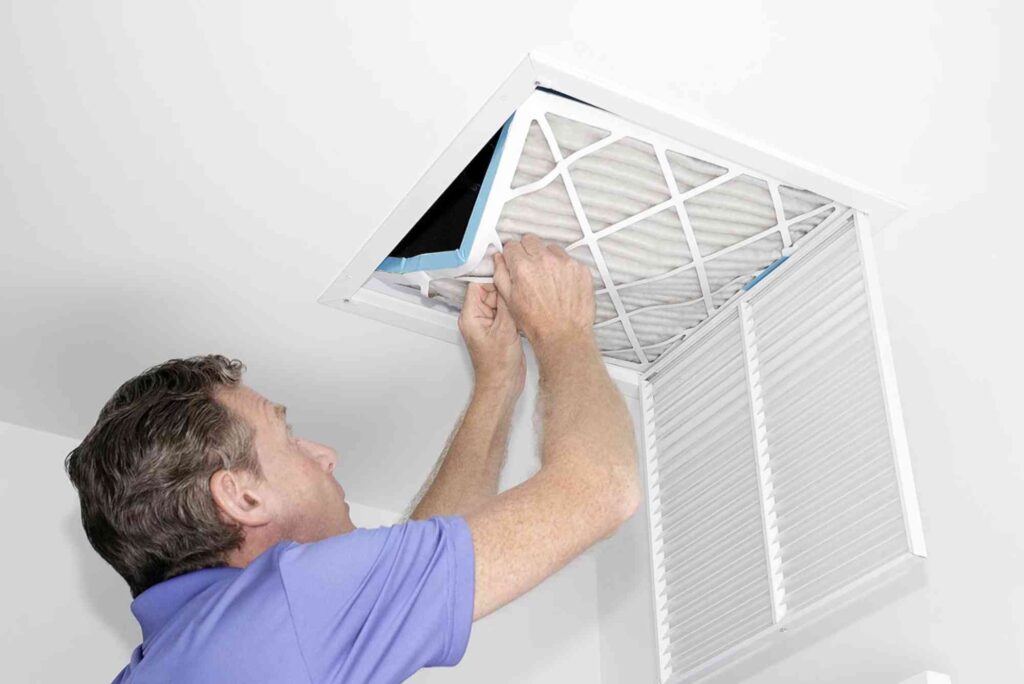Introduction
Air conditioners are an essential component of modern living, especially in regions with extreme climates. While they cool our homes and maintain comfort, they require regular maintenance to function efficiently. One of the most critical aspects of AC maintenance is replacing the air filters. Neglecting this simple task can lead to reduced air quality, higher energy bills, and potential damage to the AC system.
What Are AC Filters and Their Role?
AC filters are designed to trap dust, pollen, and other airborne particles, preventing them from circulating through your home. These filters ensure that the air you breathe is clean and free from allergens. Additionally, they protect the internal components of the AC system by preventing debris from accumulating inside the unit. A clogged or dirty filter can impede airflow, making the system work harder and reducing its efficiency.
Key Benefits of Regular AC Filter Replacement:
- Improved Air Quality: Clean filters prevent allergens, dust, and pollutants from circulating in your home.
- Enhanced System Efficiency: A clean filter allows air to flow freely, reducing strain on the system.
- Lower Energy Bills: Efficient airflow decreases energy consumption, leading to cost savings.
- Prolonged AC Lifespan: Reduced wear and tear on the system prevents costly repairs and extends its life.
- Minimized Health Risks: Cleaner air reduces respiratory issues and allergies, especially for sensitive individuals.
Why AC Filters Get Dirty Quickly
The frequency of filter replacement depends on several factors, including usage, indoor air quality, and the type of filter. Homes with pets, smokers, or residents prone to allergies may experience faster filter clogging. Az Repair Dubai Additionally, living in urban areas with higher pollution levels contributes to quicker dirt accumulation. Over time, neglecting to replace these filters can lead to system inefficiencies and increased maintenance costs.

Recognizing When to Replace Your AC Filter
Here are some indicators that your AC filter needs replacement:
- Reduced Airflow: If you notice weaker airflow from your vents, a dirty filter may be the culprit.
- Higher Energy Bills: A clogged filter forces the system to consume more energy.
- Dust Accumulation: Increased dust levels in your home may signal a clogged filter.
- Allergy Flare-Ups: Frequent allergies or respiratory issues indicate poor air quality.
Step-by-Step Guide to Replacing Your AC Filter
Replacing an AC filter is a straightforward process that can be completed in a few minutes. Follow these steps to ensure your system functions optimally:
- Turn Off the AC: Before starting, switch off the AC system to prevent dust from circulating during the replacement.
- Locate the Filter: Check your AC unit’s user manual to find the filter’s location. It’s typically near the return air duct or inside the unit.
- Remove the Old Filter: Gently slide out the old filter, taking care not to release trapped dust.
- Check the Filter Size: Note the dimensions of the old filter to ensure you purchase the correct replacement.
- Insert the New Filter: Slide the new filter into place, ensuring the arrows on the frame align with the airflow direction.
- Secure and Restart: Once the filter is securely in place, restart the AC system and enjoy improved air quality.
For professional assistance with AC maintenance, visit Ac Repair Dubai to connect with experts.
Consequences of Ignoring AC Filter Replacement
Failing to replace your AC filter regularly can lead to several issues, such as:
- Decreased Efficiency: A clogged filter restricts airflow, forcing the system to work harder.
- System Overheating: Reduced airflow can cause the system to overheat and potentially fail.
- Higher Repair Costs: Increased strain on components leads to frequent breakdowns and costly repairs.
- Health Concerns: Poor air quality exacerbates allergies and respiratory conditions.
Regular maintenance, including filter replacement, prevents these problems and keeps your AC system running smoothly.
Frequently Asked Questions (FAQs)
1. How often should AC filters be replaced?
Filters should typically be replaced every 1-3 months, depending on usage and air quality conditions. For detailed guidance, consult Az Repair Dubai.
2. Can a dirty filter damage my AC system?
Yes, a clogged filter restricts airflow, causing components to overheat and leading to potential system failure. Regular replacements prevent such issues.
3. Are reusable filters better than disposable ones?
Reusable filters can be more cost-effective in the long run, but they require thorough cleaning to maintain efficiency.
4. What type of filter is best for my AC system?
The ideal filter depends on your needs. High-efficiency particulate air (HEPA) filters are excellent for homes with allergy sufferers.
5. Can I replace my AC filter myself?
Yes, replacing an AC filter is a simple task. Follow the step-by-step guide above for a seamless process.
Regular AC filter replacement is crucial for maintaining air quality, reducing energy costs, and prolonging the life of your AC system. Neglecting this simple maintenance step can lead to costly repairs and health concerns. For expert AC maintenance services, visit Az Repair Dubai or find us at our Az Repair Location. Prioritize your comfort and health by ensuring your AC system operates at its best.
